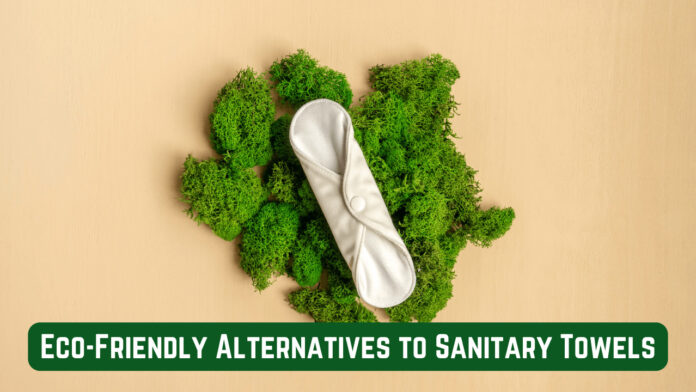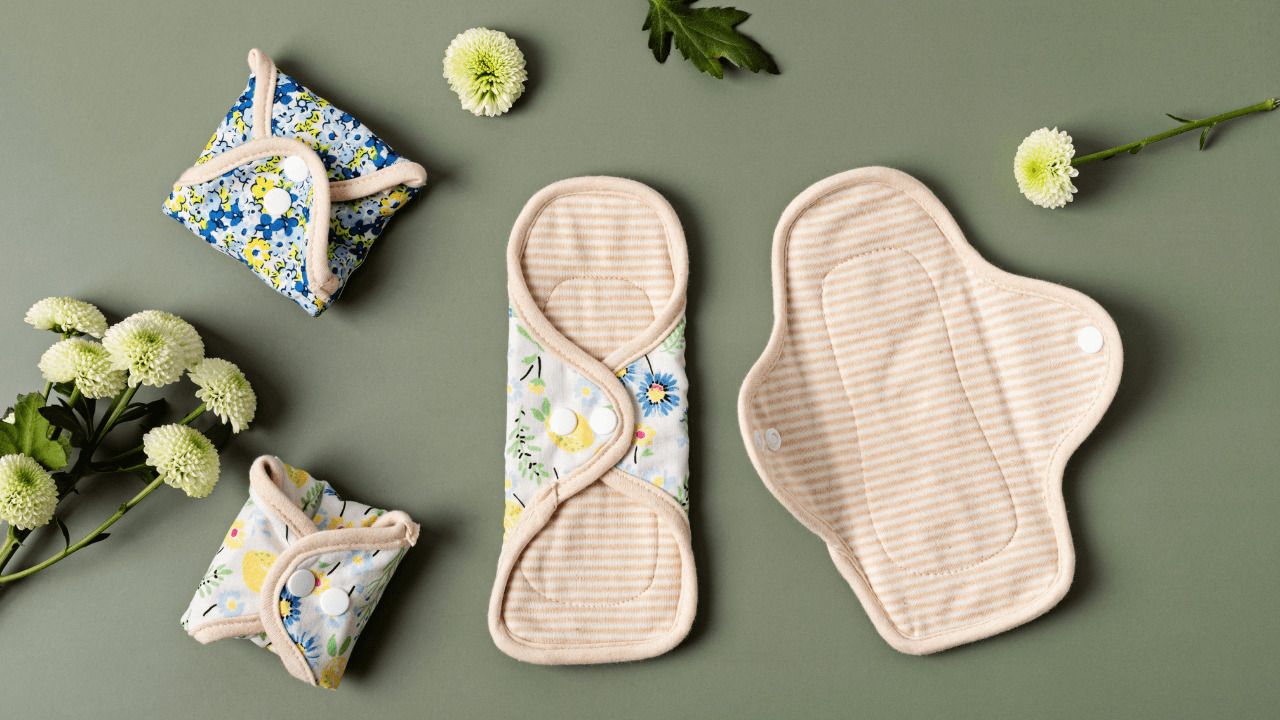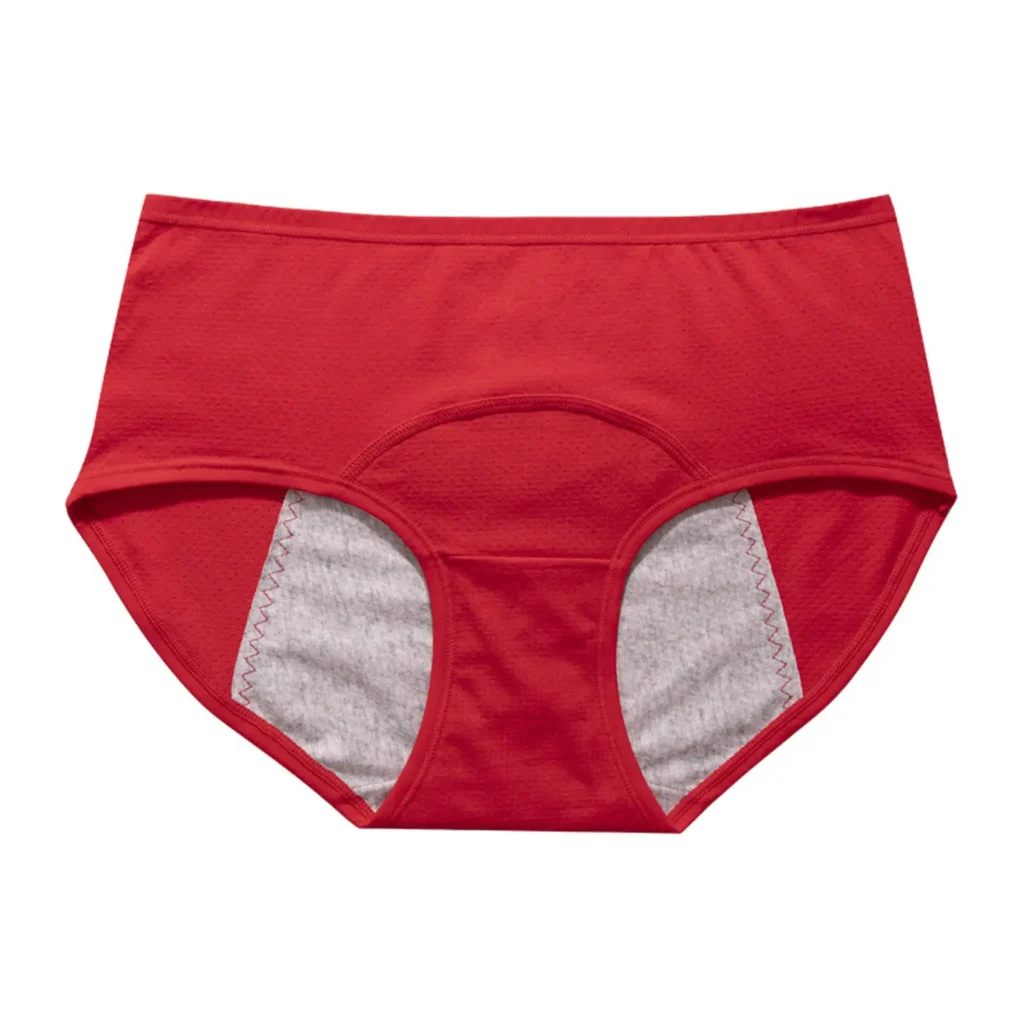It’s no secret that traditional sanitary towels wreak havoc on the environment. Disposable pads generate massive waste, with over 12 billion pads dumped in landfills yearly in the US alone. Also, each pad can take up to 500 years to decompose fully. That’s where eco-friendly, sustainable alternatives come in – by making the switch, we reduce our carbon footprint and improve our menstrual hygiene experience. There are various alternatives to sanitary towels, from menstrual cups to reusable pads. For good reason, these green alternatives are gaining popularity among women worldwide. Not only are they better for the environment, but they’re also kinder to our bodies. So why not make the switch and take a step towards sustainable feminine hygiene?
Top Eco-Friendly Alternatives to Sanitary Towels:
1) Menstrual Cups
What are Menstrual Cups?
Menstrual cups are a revolutionary product in feminine hygiene, offering a sustainable alternative to traditional sanitary towels and tampons. They are typically made of medical-grade silicone, rubber, or elastomer and free from chemicals and bleach. With a bell-like shape, menstrual cups are designed to be inserted into the vagina to collect menstrual fluid rather than absorbing it. They are reusable, easy to clean, and can hold more fluid than the average tampon or pad, making them a preferred option for many women.
How to Use Them Safely and Effectively
Using a menstrual cup involves folding and inserting it into the vagina, where it unfolds and forms a seal against the vaginal walls. Depending on the flow, the cup collects menstrual fluid and is typically emptied every 4-12 hours. To remove it, pinch the base to release the seal and gently pull it out. After each use, it should be rinsed or wiped and can be reinserted immediately. At the end of each cycle, sterilize the cup by boiling it in water.
Benefits Of Menstrual Cups:
- Sustainability: Menstrual cups are a boon for the environment. They are reusable for several years, generating significantly less waste than disposable pads and tampons.
- Cost-Effectiveness: Although the initial investment is higher, the long-term savings are substantial. Since a single cup can last for years, you save money otherwise spent on disposable products.
- Convenience: Menstrual cups are particularly convenient for active women, travelers, or those with a heavy menstrual flow. They can hold more fluid and can be worn for up to 12 hours.
Common Concerns and How to Address Them
- Insertion and Removal: Some women might find the insertion and removal process daunting or uncomfortable. Practicing relaxation techniques and trying different folding methods can mitigate this concern.
- Size and Fit: Choosing the right size is crucial. Many brands offer a variety of sizes, and it may take a bit of experimentation to find the perfect fit.
- Cleaning and Maintenance: Concerns about cleaning the cup can be addressed by following the manufacturer’s cleaning guidelines and ensuring regular sterilization.
- Leakage: Proper positioning and choosing the right size can prevent leaks. It’s also recommended to empty the cup regularly, especially during heavy flow days, to avoid overfilling.
2) Cloth Pads
An Introduction to Cloth Pads
Cloth pads, an eco-friendly alternative to sanitary towels, are gaining popularity for their sustainability and comfort. They come in various materials like cotton, flannel, and bamboo, each offering a unique feel and level of absorbency. These pads are available in various sizes, thicknesses, and styles, ensuring a customized fit for every woman.
Usage and Maintenance
Using cloth pads is as simple as positioning them in your underwear like a disposable pad. The wings, usually fastened with snaps, help secure the pad. Cleaning is straightforward; rinse them in cold water to remove the blood, then wash them in a machine or by hand using mild detergent. Allow them to air dry to maintain their integrity and absorbency. Proper maintenance ensures hygiene and extends the life of the pads.
Benefits Of Cloth Pads
- Reusability: One of the primary benefits is their reusability, which has made them a cost-effective and eco-friendly option over the years.
- Comfort: Many women find cloth pads more comfortable than disposable ones. They are soft, breathable, and free from irritating chemicals.
- Reduced Waste: Switching to cloth pads significantly reduces plastic waste and environmental pollution.
Potential Drawbacks
- Upfront Cost: While cost-effective in the long run, the initial investment for cloth pads is higher than buying a pack of disposables.
- Maintenance Effort: Some might find washing and drying cloth pads a chore compared to the convenience of disposables.
- Availability: Although becoming more mainstream, cloth pads can still be less readily available than traditional pads, often needing to be purchased online.
3) Period Panties
What are Period Panties?
Period panties, also known as menstrual underwear or leak-proof underwear, are specially designed to protect during menstruation without additional pads or tampons. They come in various styles and absorbencies and can be worn alone or as a backup with other methods.
How Do They Work?
Most period underwear has a built-in absorbent layer, usually made of cotton, bamboo, or microfiber layers. Some also have an additional waterproof layer to prevent leaks. They are generally worn for 8-12 hours and can be washed and reused.
Benefits Of Period Panties:
- No Additional Products Required: Period panties eliminate the need for disposable products like pads or tampons, making them a convenient and sustainable option.
- Leak-Proof: With their built-in absorbent layers, period panties provide excellent protection against leaks without additional products.
- Comfort: Made from soft materials, period panties offer a comfortable, irritation-free alternative to disposable pads or tampons.
Considerations
- Sizing: As with any clothing item, finding the right size for a comfortable fit and maximum protection is essential.
- Absorbency: Depending on your flow, you may need to change period panties more frequently than other methods, so it is recommended that you have multiple pairs.
- Disposal: While reusable and sustainable, period panties will eventually wear out and must be replaced. Please ensure that old pairs are handled by recycling or repurposing them.
4) Alternative Options for Period Products
Aside from menstrual cups, cloth pads, and period panties, several other alternatives to sanitary towels for managing periods sustainably exist. These include:
1. Menstrual Discs
Like menstrual cups, discs are inserted into the vagina to collect blood. However, they differ in shape and can be worn during sexual intercourse.
2. Reusable Tampons
Made from organic cotton or bamboo, reusable tampons can be washed and reused for several years.
3. Sea Sponge Tampons
Sea sponge tampons are natural and biodegradable alternatives to traditional tampons. They are made from sustainably harvested sea sponges and can be composted after use.
4. Menstrual Swimwear
Designed to be worn during swimming, these bathing suits have a built-in absorbent lining for protection.
5. Period Underwear for Tweens and Teens
There are now period panties designed specifically for younger menstruating individuals, providing them with a sustainable and comfortable option from the start of their menstrual journey.
6. Homemade Cloth Pads
For those who enjoy sewing or want to save money, homemade cloth pads can easily be made with basic materials and sewing skills. There are many tutorials available online for different styles and absorbencies.
7. Biodegradable Pads
Some brands offer biodegradable disposable pads from sustainable materials like bamboo or organic cotton. While still a single-use product and more environmentally friendly than traditional disposable pads.
You might be interested in:How to Choose the Right Sanitary Towel Size!
Making the Switch
Considerations before transitioning to eco-friendly options
Before deciding to switch to eco-friendly menstrual products, it’s important to consider a few factors. Price is crucial; while eco-friendly options can prove cost-effective in the long run, they often require a higher upfront cost. Availability can be a challenge as these products are typically found online or in health stores, only in some supermarkets. Comfort and ease of use are also crucial factors. Some people might initially find the application and cleaning of menstrual cups or reusable tampons a bit tricky. Finally, lifestyle plays a big role; active individuals or frequent travelers might prefer period panties or menstrual discs over cloth pads.
Tips for a smooth change
Making the change to eco-friendly menstrual products doesn’t have to be abrupt. You can start using these products on lighter-flow days or at night. This will allow you to familiarize yourself with the new product and understand its fit and comfort level. Trying different brands and styles to find what suits you best is also a good idea. Patience and openness to learning are key; there might be a learning curve when you start using these products, especially with items like menstrual cups.
Customizing your eco-friendly feminine hygiene routine
The key to a comfortable and effective menstrual management strategy is understanding that there’s no one-size-fits-all solution. The beauty of eco-friendly alternatives to sanitary towels lies in their diverse variety, allowing you to tailor your routine according to your needs and preferences. For instance, you might find a menstrual cup the best fit for heavy-flow days and prefer to switch to period panties on lighter days. Cloth pads could be your choice during daytime hours, and period panties might be your favorite for overnight use.
Consider your day-to-day activities, comfort level, and period flow when determining the best combination. And remember, flexibility is essential. What works perfectly one month may need a small tweak the next. You can stay open to adjusting your routine as your needs change. This is the key to effectively using alternatives to sanitary towels.
Frequently Asked Questions
Q1: What are eco-friendly alternatives to sanitary towels?
A1: Eco-friendly alternatives to sanitary towels include menstrual cups, reusable cloth pads, period panties, and organic cotton tampons. These products are designed to be reusable or made from sustainable, biodegradable materials to minimize environmental impact.
Q2: Are menstrual cups safe to use?
A2: Yes, menstrual cups are generally safe to use. They are made from medical-grade silicone, rubber, or latex and can be safely inserted into the vagina to collect menstrual blood. Following the manufacturer’s instructions on proper usage and hygiene is important.
Q3: How do reusable cloth pads work?
A3: Reusable cloth pads work similarly to disposable sanitary towels but are made from fabrics like cotton, bamboo, or hemp. They can be washed and reused multiple times, making them a sustainable option. Most have snaps or wings to secure them in place on your underwear.
Q4: Are period panties effective?
A4: Yes, period panties are designed to absorb menstrual flow and are an effective alternative to sanitary towels. They come with multiple absorbent layers and a waterproof barrier to prevent leaks. They can be washed and reused, reducing waste and providing a convenient option.
Q5: How do you care for eco-friendly menstrual products?
A5: Most eco-friendly menstrual products can be easily cared for by following the manufacturer’s cleaning instructions. Generally, menstrual cups should be boiled between cycles, cloth pads and period panties washed with cold water and gentle detergent, and organic tampons should be disposed of responsibly.
Q6: What are the benefits of using eco-friendly menstrual products?
A6: Using eco-friendly menstrual products reduces environmental waste, lowers long-term costs, and can be healthier for your body as they often contain fewer chemicals and synthetic materials. They also provide comfort and reliability during your menstrual cycle.
Q7: Are eco-friendly menstrual products cost-effective?
A7: While eco-friendly menstrual products may have a higher upfront cost than disposable sanitary towels, they tend to be more cost-effective over time because they are reusable. With proper care, they can last for several years, providing savings in the long run.
Conclusion
Exploring alternatives to sanitary towels opens up a new world of comfort, sustainability, and personal health. Eco-friendly menstrual products offer numerous benefits for our bodies and the environment. With a wide range of options available, there’s something for everyone to make their period experience more comfortable, convenient, and sustainable. Next time you reach for your disposable pads or tampons, consider switching to one of these alternative options to sanitary towels and see for yourself the difference it can make. By choosing eco-friendly menstrual products, you’re taking care of your health and comfort and positively impacting the planet. So why not give them a try? Stay informed, stay comfortable, and stay sustainable!



